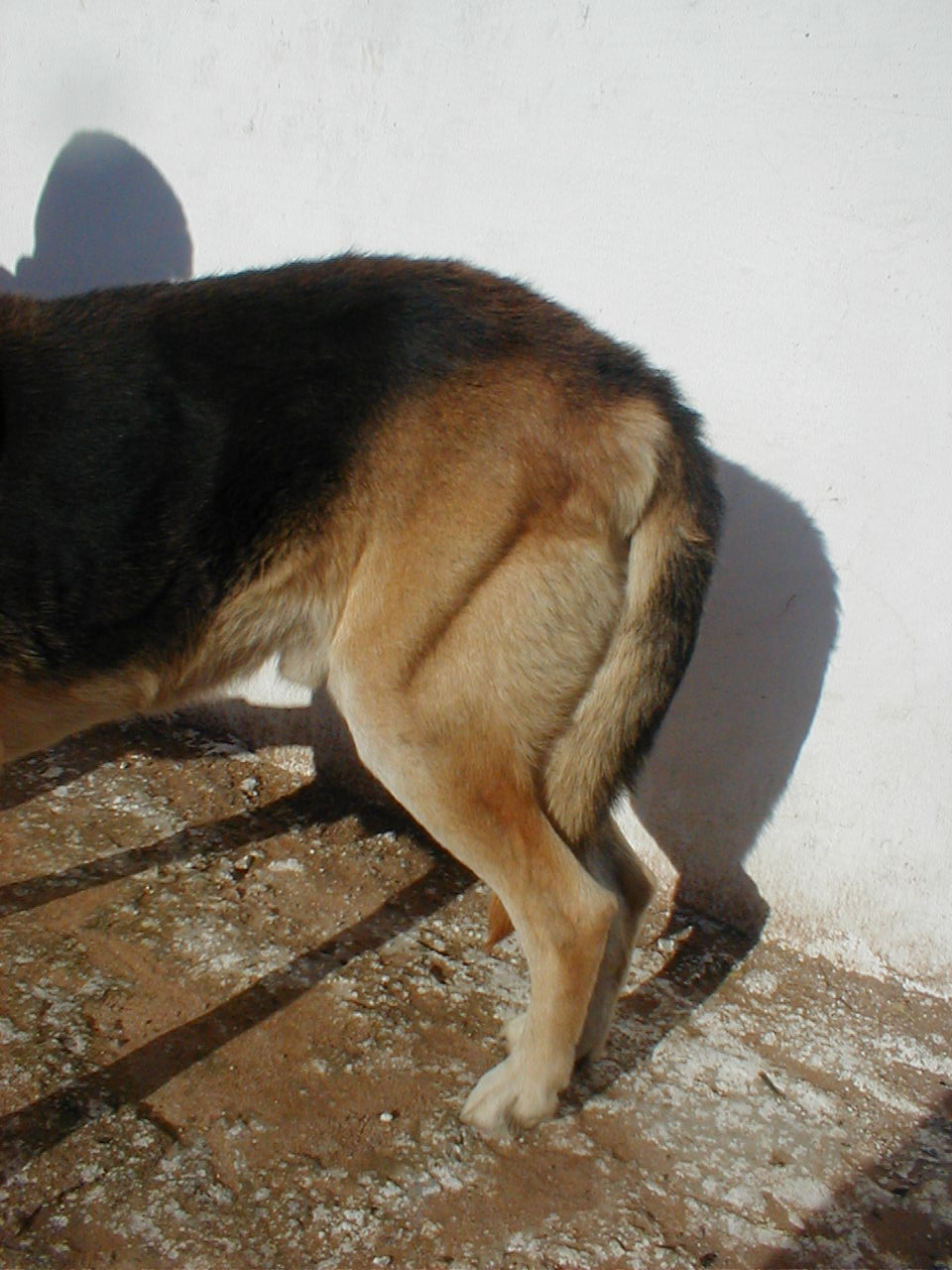Cause
The most common cause of hip popping in dogs is hip dysplasia. This is a congenital disease that results in malformation of the ball-and-socket joint that makes up the hip. Instead of a smoothly moving joint, a dysplastic hip features a ball and socket that don't fit together correctly. When the hip moves, the two parts of the joint rub together, causing uncomfortable friction and the wearing away of cartilage. Eventually, arthritis dogs will result.
 Symptoms
SymptomsA dog with hip dysplasia may have difficulty standing and may hesitate walking up stairs. He may "bunny hop," or use both rear legs together instead of independently of each other. He may walk with a noticeable sway in his back end as he tries not to engage his painful hip. You may notice that he spends more time at rest. In some dysplastic joints, you'll hear a popping sound as the loose ball makes contact with the socket.
Treatment
If your dog is overweight, it's important to put him on a weight-control program. Every extra pound on your pet's frame places more pressure on the joints, which helps accelerate the progression of the disease. Regular exercise can stimulate cartilage growth and build muscle, which can help take the strain off the joints. Your vet may prescribe a nonsteroidal natural anti inflammatory dogs drug (NSAID) to help treat the pain and the arthritis. In severe cases, surgery may be necessary.
If your dog is overweight, it's important to put him on a weight-control program. Every extra pound on your pet's frame places more pressure on the joints, which helps accelerate the progression of the disease. Regular exercise can stimulate cartilage growth and build muscle, which can help take the strain off the joints. Your vet may prescribe a nonsteroidal natural anti inflammatory dogs drug (NSAID) to help treat the pain and the arthritis. In severe cases, surgery may be necessary.
Prevention
Since dogs are born with hip dysplasia, it's not preventable. However, you can help slow its progression and keep your dog comfortable for a longer period of time. At the first signs of lameness, soreness or other indications of hip pain, start her on glucosamine and chondroitin to help maintain joint tissue and fluid. This will help slow the degeneration of the joints, and therefore help delay the onset of pain and inflammation. Talk to your vet about a prescription medication that can help manage the symptoms of this disease.
Since dogs are born with hip dysplasia, it's not preventable. However, you can help slow its progression and keep your dog comfortable for a longer period of time. At the first signs of lameness, soreness or other indications of hip pain, start her on glucosamine and chondroitin to help maintain joint tissue and fluid. This will help slow the degeneration of the joints, and therefore help delay the onset of pain and inflammation. Talk to your vet about a prescription medication that can help manage the symptoms of this disease.
Warnings
Don't exercise your pet too much. Some exercise is helpful, while too much can be detrimental to good joint health. One or two short walks a day should be enough exercise for a dog with mild hip dysplasia. If your dog has surgery to treat this condition, be sure to wait the full recovery period before returning to normal activities. Exercising too soon can cause further damage to the joint area.
Don't exercise your pet too much. Some exercise is helpful, while too much can be detrimental to good joint health. One or two short walks a day should be enough exercise for a dog with mild hip dysplasia. If your dog has surgery to treat this condition, be sure to wait the full recovery period before returning to normal activities. Exercising too soon can cause further damage to the joint area.
No comments:
Post a Comment